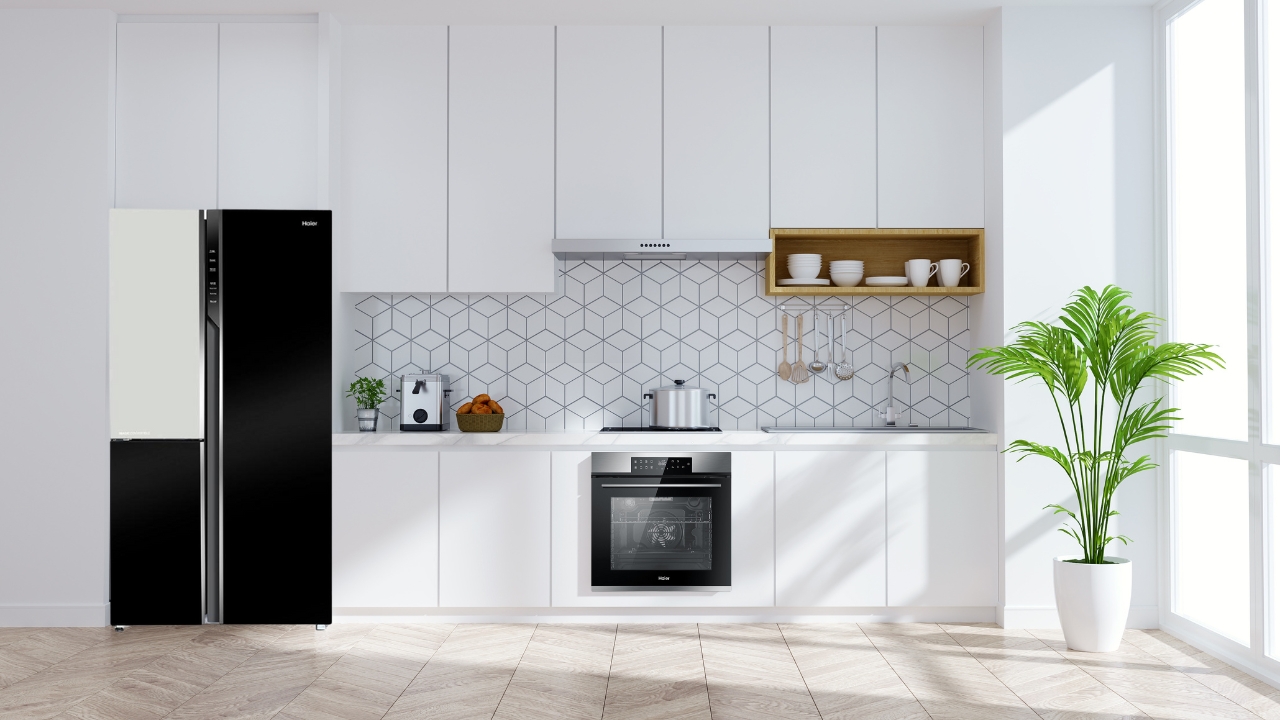With the rising awareness of the impact we have on our environment, more and more people are looking to make greener choices. One appliance that’s found in every house is the refrigerator. You can reduce your carbon footprint by choosing an energy efficient, environmentally friendly fridge model. So here are a few tips to help you spot the most eco-friendly refrigerators in India.
How do Fridges Affect the Environment?
Fridges need to keep things cold all day long, no matter what time it is. Because of this, they suck up a lot of energy which leads to greenhouse gas emissions. Standard models use between 300-600 kilowatt hours annually and release lots of harmful chemicals into our air and water when being manufactured.
Landfills get filled with fridges once they reach their end-of-life stage as well. Hazardous materials like insulation, coolants and circuit boards then contaminate everything around them. By purchasing an eco-friendly fridge made from recyclable materials you can prevent negative impacts.
What Makes a Refrigerator Eco-Friendly?
A fridge that has sustainable features should:
- Be highly energy efficient
- Use natural responsible refrigerants
- Have recycled material used during construction
- Offer recyclable parts/materials at end-of-life
- Follow green manufacturing processes
- Provide maximum freezer/fridge space within a minimal footprint
- Come with a long warranty for repairs
Buying one of these models will not only save energy, but also save you money over time while reducing waste and resource consumption.
Key Factors to Consider
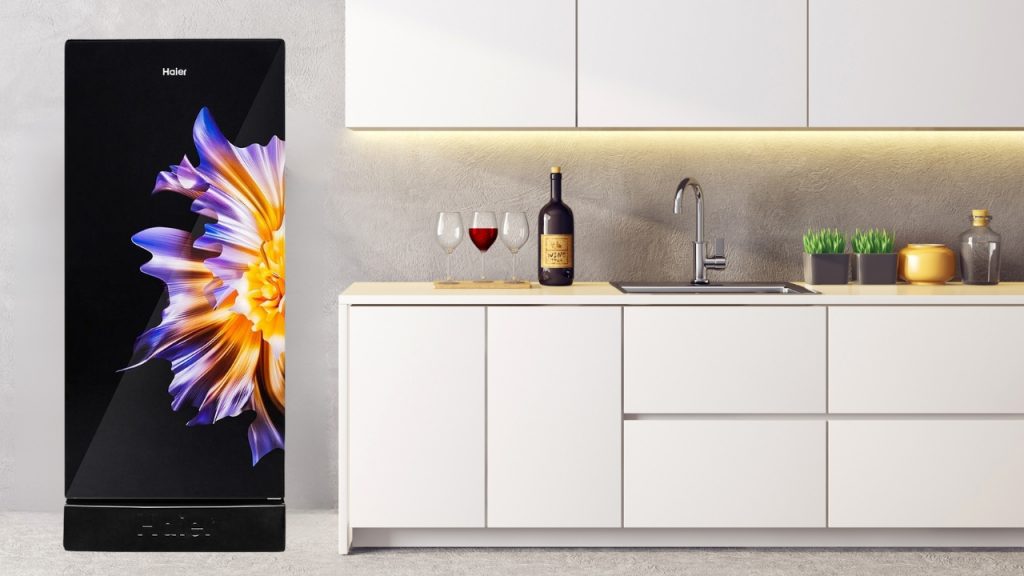
Here are some main factors to look out for when searching for an eco-friendly refrigerator:
- Energy Efficiency Ratings
- Look for the Energy Star certification which verifies efficiency independently.
- Check their BEE star rating (1-5 stars) which is based on how efficient it runs according to India’s Bureau of Energy Efficiency.
- Find a model with inverter compressors since these units work based on cooling needs rather than being always on
- Avoid large units if possible because the bigger the fridge, the more energy it uses.
Refrigerant Type
- Use refrigerants like R600a and R290 which are hydrocarbons with almost zero environmental impact.
- Find low global warming potential versions such as R134a and R410a since they meet EPA guidelines.
- Stay away from refrigerants like R12 which is a chlorofluorocarbon that has been banned due to its harmful effects on our ozone layer.
Material Composition
- Choose metal-free cabinets made from plastic or polycarbonate materials because these are easier to recycle.
- Pick a product that has recycled insulation made from eco-friendly polyurethane insulation containing recycled content.
- Go for finishes that use fewer chemicals than painted finishes such as powder coated metal and glass.
Warranty Coverage
Make sure sealed system coverage is offered in case any issues arise with your new appliance (10-25 years). This encourages better manufacturing and serviceability.
Best Practices for Eco-Friendly Use
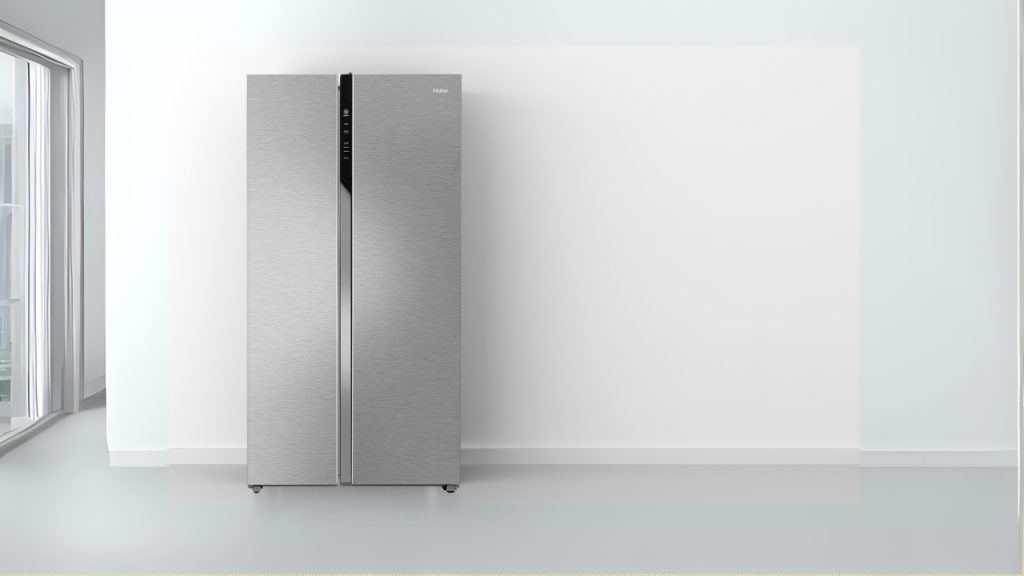
Once you purchase a green refrigerator, using it responsibly also minimizes environmental impact:
- Maintain a temperature between 36°F-40°F for the fridge and 0°F for the freezer.
- Allow adequate air circulation for optimal compressor function.
- Avoid keeping the door open unnecessarily while cooking or retrieving items.
- Defrost regularly and ensure door seals are airtight to avoid ice buildup.
- Turn off auxiliary features like through-the-door ice and water as needed.
- Use biodegradable cleaners and avoid harsh chemicals on interior surfaces.
- Recycle old appliances through certified pickup programs instead of landfilling.
Top Eco-Friendly Refrigerator Brands and Models
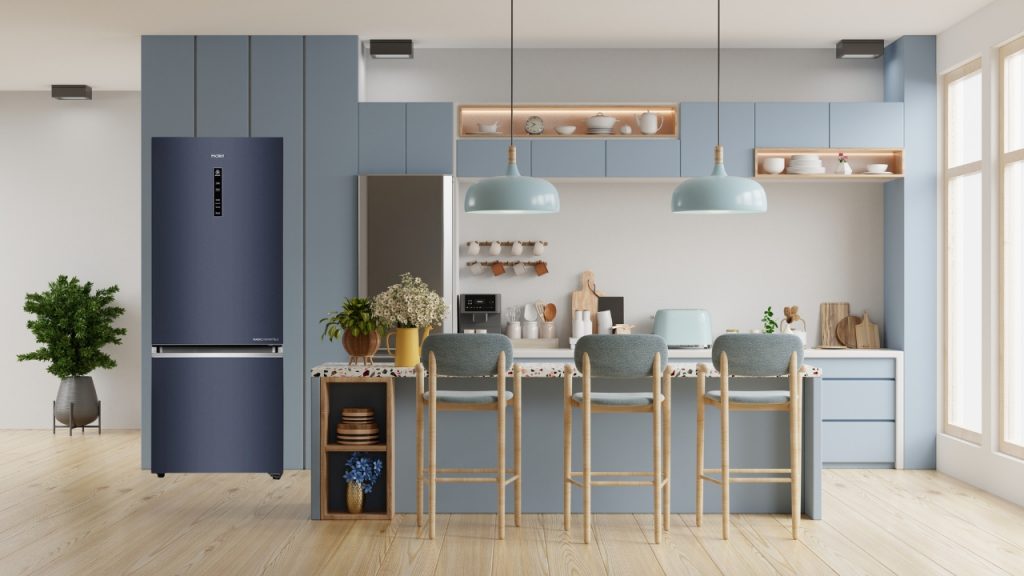
To help you start your search, here are some of the top-rated environmentally friendly refrigerators in India:
Best Features:
- 355L large capacity
- 3 star energy rating for efficiency
- Uses recycled insulation materials
- AG Clean technology for hygiene
- Long 10-year compressor warranty
One should choose this refrigerator for its large capacity, energy efficiency, eco-friendly insulation, hygienic technology and long compressor warranty.
2. Haier 190L 5 Star Direct Cool Single Door Refrigerator With Toughened Glass Shelf HRD-2105PFG-P
Best Features:
- 5 star energy rating for high efficiency
- 1 Hour Icing technology for faster ice formation
- Stabilizer free operation saves electricity
- Toughened glass shelves for durability
- Anti-bacterial removable gasket for easy cleaning
This refrigerator is ideal for its high energy efficiency, quick ice making, electricity saving, sturdy shelves and easy cleaning.
Best Features:
- Diamond edge freezing technology for better cooling
- Inverter compressor for energy efficiency
- Stabilizer free operation
- Toughened glass shelves
- Removable anti-bacterial gasket for hygiene
One should opt for this refrigerator for its advanced cooling technology, energy efficient inverter compressor, electricity saving, durable shelves and hygienic design.
Best Features:
- 10 in 1 convertible modes for flexibility
- Twin energy saving modes save 15-30% energy
- Turbo icing for fast ice making
- Triple inverter & dual fan technology maintain freshness
- Connect home inverter for uninterrupted cooling
This stylish and feature-rich refrigerator is recommended for its versatile convertible modes, high energy savings, quick ice making, freshness retention and smart home inverter compatibility.
Best Features:
- 10 in 1 convertible modes for multi-purpose use
- Triple inverter & dual fan technology for energy efficiency
- 1 Hour icing technology for quick ice making
- Stabilizer free operation saves electricity
- Connect home inverter for cooling during power cuts
One should choose this convertible refrigerator for its flexibility, energy efficient technology, rapid ice making, electricity saving and uninterrupted cooling with home inverter.
Buying Second-Hand vs New Eco-Friendly Fridges
For budget-conscious buyers, second-hand refrigerators may seem like an appealing eco-option. However, used older models are likely far less energy efficient than new ENERGY STAR rated units. They may require more repairs and lack the modern green features we’ve covered.
Unless you can verify an existing fridge is relatively new with inverter compressors and adequate insulation, purchasing second-hand is not the most environmentally or economically sound choice long-term. The higher upfront cost of a new eco-friendly model pays dividends through electricity savings and reliability.
Regulations Encouraging Sustainable Refrigerators
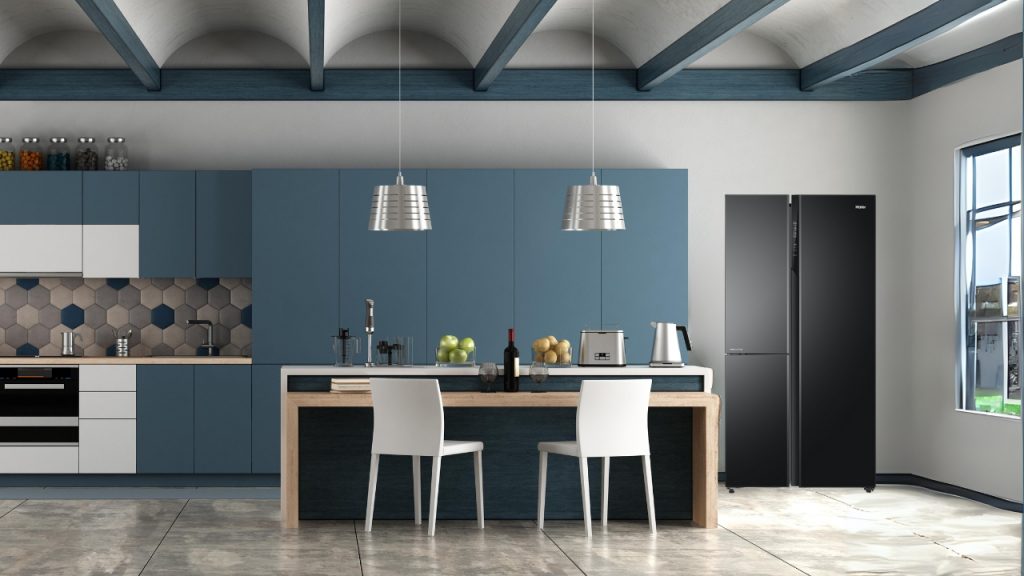
India has implemented various regulatory standards that promote manufacturing of greener refrigerators:
Eco-friendly Refrigerant Mandate – In 2020, India prohibited using refrigerants with global warming potential like R-134a and R-410a in new models. Environmentally safer alternatives like R-600a are now required.
Energy Performance Standards – The Bureau of Energy Efficiency established minimum energy performance standards for refrigerators under the Energy Conservation Act of 2001. This provides efficiency ratings and drives improvement.
Recycled Plastic Usage Mandate – As of 2022, bulk plastic packaging must contain 20% recycled content while plastic bottles should average 25% recycled material. This reduces plastic waste.
E-Waste Management Rules – Rules covering end-of-life recycling and restrictions on hazardous materials in electronic waste help sustainably manage obsolete appliances.
As standards continue improving, consumers will have growing access to eco-friendly refrigerators at reasonable prices.
With rising awareness and improving standards, consumers can expect more energy efficient and eco-friendly refrigerators that don’t compromise on affordability. Collective mindful purchasing and policies promoting sustainability will steadily reduce the electronics industry’s environmental impact.
Creating an Eco-Friendly Kitchen
Upgrading your fridge is one impactful step for greening your kitchen. But there are additional appliances and habits that can minimize your culinary footprint:
Energy Efficient Cooking – Opt for induction cooktops over gas as they use half the energy. Pressure cookers also conserve energy.
Sustainable Water Usage – Install low-flow faucets and consider filtered water pitchers over bottled water.
Natural Cleaning Supplies – Avoid toxic chemicals with green cleaners or DIY solutions with vinegar, lemon juice, baking soda, etc.
Organic Waste Composting – Compost vegetable peels, eggshells and other food scraps to produce nutrient-rich fertilizer for plants.
Renewable Energy – Utilize solar panels or wind energy to power your appliances with clean electricity.
Energy Monitoring – Use apps and smart plugs to track appliance energy usage and identify savings opportunities.
Food Waste Reduction – Plan meals wisely, store items for longevity, and repurpose leftovers creatively to cut food waste.
With holistic sustainability measures, your kitchen can have minimal ecological impact while functioning smoothly.
The Eco-Friendly Choice with Haier

As highlighted earlier, Haier refrigerators stand out for their eco-friendly credentials. Their Direct Cool and Frost Free models offer excellent energy savings along with recycled insulation materials made from repurposed plastic bottles.
The highly-efficient compressors, cool flow vents, and insulated back panels optimize cooling while minimizing energy wastage. AG Clean Technology uses anti-bacterial filters and ions to keep the interior fresh without harsh chemicals.
With 10-year warranties and nationwide service networks, Haier ensures the fridges deliver enduring performance. So for a refrigerator that doesn’t compromise the environment or reliability, Haier makes an excellent sustainable choice for Indian homes.
Conclusion
With climate consciousness growing, we all want to make purchases that align with eco-friendly values. For an appliance that runs 24/7, refrigerators are a priority item to make greener. This guide has highlighted what to evaluate – from efficiency ratings to recyclable materials and warranties.
Seeking out sustainability certified models like those from Haier reduces environmental harm without sacrificing storage needs. Combined with eco-habits in the kitchen, small steps towards an energy efficient fridge make a cumulative difference to protect the planet. Because going green shouldn’t mean going without the refrigeration we rely on in our homes.

